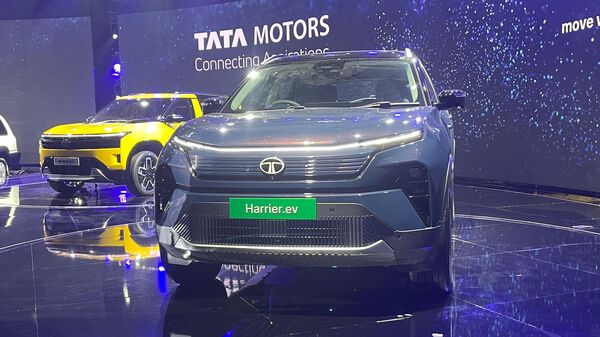Tata Motors aims to maintain its lead in the Indian EV market through local battery manufacturing amid rising competition. The company will invest $1.
…

Tata Motors, India’s largest electric vehicle (EV) manufacturer, is counting on locally manufactured batteries to retain its dominance amid rising competition in the country’s fast-evolving EV market. In an interview with Reuters, P.B. Balaji, group CFO at Tata Motors, said the company’s push for domestic battery manufacturing will help it maintain the lead in an increasingly competitive landscape.
Tata Motors’ EV market share declined to 62 per cent in 2024, down from 73 per cent the previous year, as industry rivals such as JSW MG Motor gained ground with new model launches. The competition is expected to further intensify in 2025, with Mahindra & Mahindra, Hyundai Motor, and market leader Maruti Suzuki launching new EV offerings. Additionally, Tesla Inc., the global EV giant, continues to explore the Indian market, potentially adding another degree of rivalry.
To strengthen its position, the Tata Group has announced an initial investment of $1.5 billion to establish a battery gigafactory in India that will supply Tata Motors. Operated by Agratas, the Tata Group’s battery arm, the facility will begin producing lithium-ion cells in 2026. Balaji says this move will enable Tata Motors to further integrate its supply chain, reducing its reliance on external suppliers and securing the most expensive EV component: batteries.
Also Read : Mahindra & Mahindra plans major EV shift, aims for 30 per cent EV adoption by 2030
Tata Motors is able to optimise costs and investments by drawing on EV components and charging infrastructure from the wider Tata Group ecosystem. The company’s EV lineup includes models priced between ₹8.00 lakh to ₹22.00 lakh, offering a broad range of options aimed at varying customer segments.
Balaji told Reuters that production at the Gujarat-based gigafactory is expected to reach peak capacity by 2028, ensuring a stable supply of batteries for the company’s expanding EV portfolio. With its integrated supply chain, Tata Motors is positioned to gain a competitive edge over newer entrants such as Mahindra, Maruti Suzuki, and Hyundai, which depend on third-party suppliers for EV batteries and components.
Suggested watch: Tata Sierra SUV unveiled at Auto Expo 2025 | Hyundai Creta, Mahindra Thar Roxx rival
Tata Motors is also financially well-positioned to compete aggressively in the market, said Balaji. The company received $1 billion in funding from US-based private equity firm TPG and benefits from India’s EV incentive program, expected to provide Tata with approximately $750 million over the next four years. According to Balaji, the first $17 million has already been received, and the company is confident that it can sustain growth as battery prices decline and the business starts self-funding.
While EVs accounted for only 2.5 per cent of India’s 4.3 million car sales in 2024, the segment’s growth rate of 20 per cent far outpaced the overall car market’s five per cent growth. In 2024, EVs made up approximately 12 per cent of Tata’s total car sales, and the company is aiming to take this share up to 30 per cent by 2030. With new model launches and increasing consumer adoption, EV sales are expected to double in 2025 from 100,000 last year.
Get insights into Upcoming Cars In India, Electric Vehicles, Upcoming Bikes in India and cutting-edge technology transforming the automotive landscape.
First Published Date: 25 Jan 2025, 09:56 AM IST



